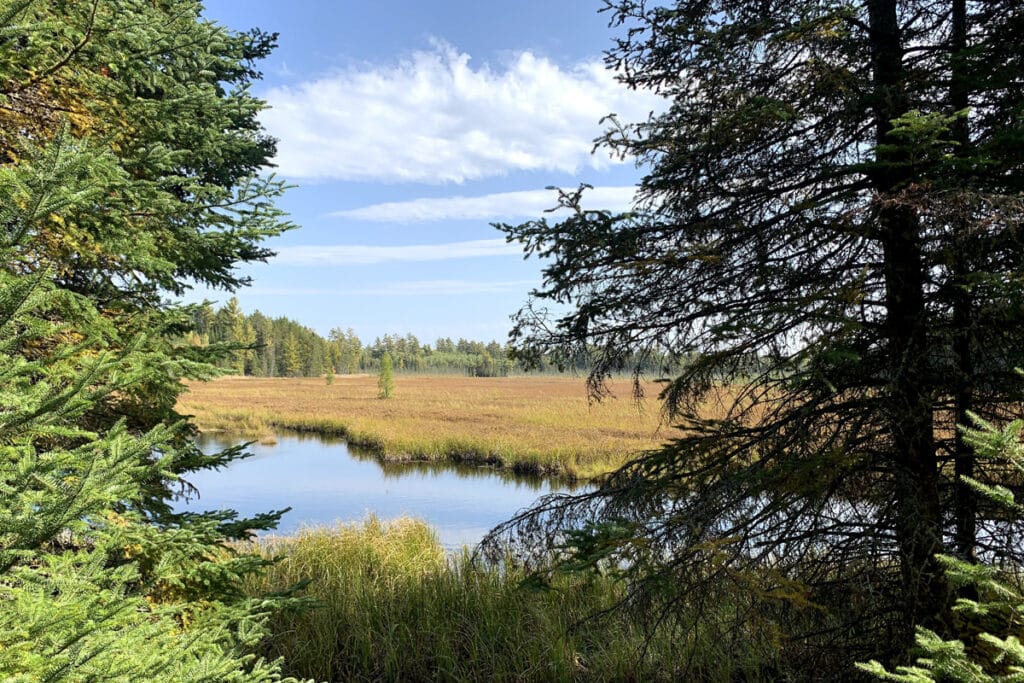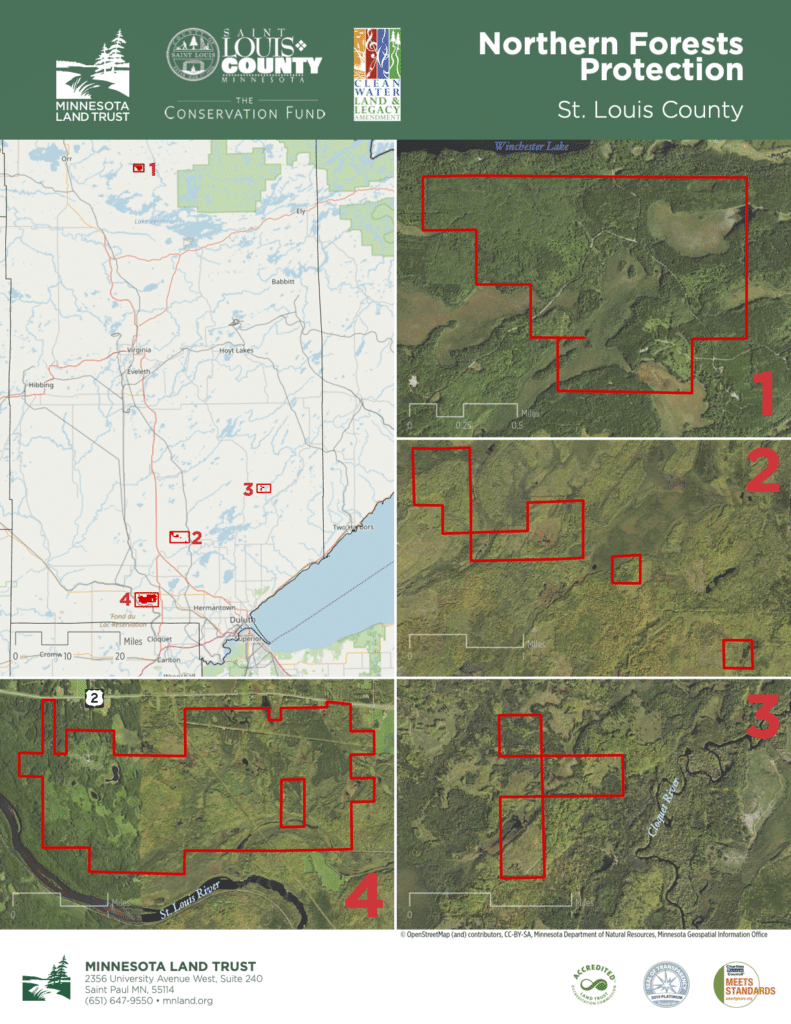
Almost 4,400 acres of land located between Duluth and Minnesota’s northern border have been acquired by St. Louis County, thanks to efforts by two conservation groups. The deal will transfer lands from forest products company PotlatchDeltic to the county for permanent protection and public access.
The county will manage the lands for recreation, wildlife, and sustainable timber harvest.
“PotlatchDeltic was one of the largest private industrial forest landowners in St. Louis County, and the impact of that land being sold and developed would reverberate across the North Woods,” said Daryl Peterson, director of restoration programs with the Minnesota Land Trust. “Once land is sold off to a hundred different parties, it is nearly impossible to manage the incredible forest ecosystems native to northern Minnesota.”
The Minnesota Land Trust and The Conservation Fund purchased the four large parcels with $4.2 million provided by the Minnesota Legacy Amendment, and then donated them to St. Louis County. The deal was the biggest in Minnesota Land Trust history since it was founded in 1991. Additional funding came from the Four Cedars Environmental Fund of the Duluth Superior Area Community Foundation, the Lloyd K. Johnson Foundation, and the Wallin family.

The protected land fosters many types of wildlife, including white-tailed deer, gray wolves, Canada lynx, and ruffed grouse. It also provides habitat for sensitive bird species, located at the edge of breeding ranges for the Golden-winged and Blackburnian Warbler, as well as the American Woodcock.
Forest fragmentation is a major concern in northern Minnesota. As large landholders divest of their property, they are often subdivided. New development and roads breaks up the large, contiguous blocks of habitat that many species need to thrive. The Minnesota Forest Resources Council has identified such fragmentation as the biggest threat to the ecological and economic health of Minnesota’s forests.
“Minnesota’s forests face an enormous challenge today: development pressures are increasing and impacting the state’s ability to sustain its working forests,” a 2010 report by the DNR said. “Conserving this interconnected network of private and public lands as working forest is integral to Minnesota’s overall quality of life.”
The lands include parcels near the St. Louis and Cloquet Rivers, and Winchester Lake, north of Lake Vermilion.
The acquired lands are part of a larger PotlatchDeltic plan to divest of about 10,000 acres in northern Minnesota. The company says its land ownership in the state is dominated by parcels in remote areas, which are “ideal for conservation and working forest protection.”
PotlatchDeltic expects to divest of almost all its Minnesota holdings by next year. It also still operates a lumber mill in Bemidji and plans to continue that business.

